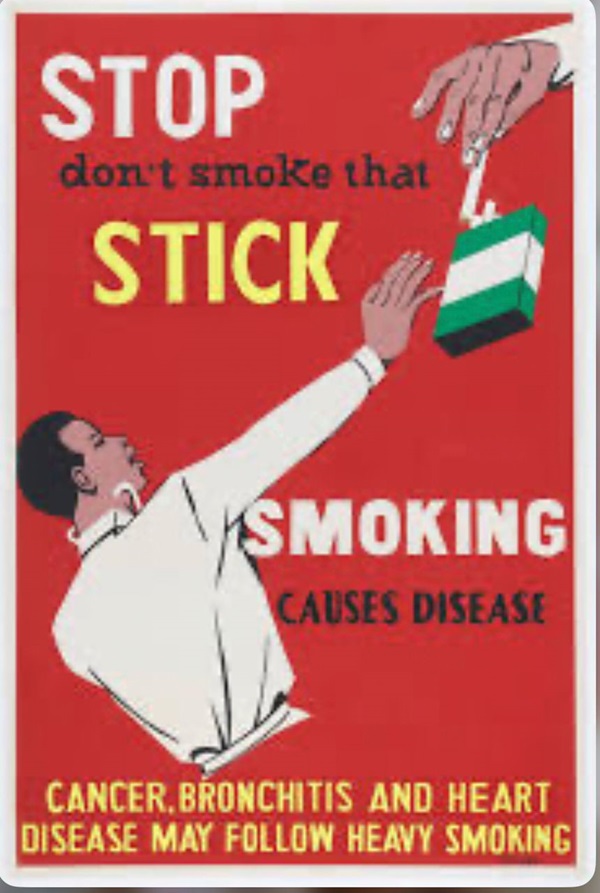
On a scorching afternoon in Abuja’s Federal Capital Territory, 15-year-old Tobi (not his real name) stands in front of a small store in Sagwari Estate Layout, Dutse-Alhaji, a suburb of Bwari local government area, Abuja. With a casual wave of his hand, he points at an item not often associated with his age group – a pack of cigarettes. The shopkeeper, hardly sparing him a glance, hands over the pack.
In Jiwa, another suburb of Abuja (this time, in Abuja Municipal Area Council), Jemila (also not her real name), a teenager, browses a street vendor’s stall displaying a colourful array of vapes. Mallam Musa Ali, the vendor, enthusiastically offers her a particularly eye-catching flavour. Minutes later, money exchanges hands and Jemila walks away with her purchase.
What emboldens minors like Tobi and Jamila to openly buy these harmful products despite parental, community and governmental efforts to curtail such behaviour? What implications do their actions have for Nigeria’s future?
A Law on Paper
The National Tobacco Control (NTC) Act, signed into law in 2015 by then-President, Dr. Goodluck Jonathan explicitly prohibits the sale of tobacco products to anyone under 18. However, investigations paint a grim picture. Vendors, either unaware of or outright ignoring the law, continue to sell cigarettes and vapes to minors. This highlights significant enforcement gaps in regulating tobacco sales and consumption.
While physical stores remain a primary source of these products, the online marketplace poses an even greater threat. Without robust age-verification mechanisms, tobacco products can be purchased with just a few clicks, bypassing existing restrictions entirely.
Dr. Ngozi Okechukwu, a public health advocate, warns that the proximity of tobacco vendors to schools further exacerbates the issue. “When tobacco products are within easy reach of children, it normalizes their presence and increases the likelihood of experimentation,” she explains.
A Growing Health Crisis
The increasing popularity of vaping among Nigerian youth has added another dimension to this crisis. Marketed as a safer alternative to cigarettes, e-cigarettes often lure young people with appealing flavors and sleek designs. However, studies from reputable institutions like Johns Hopkins University have identified harmful chemicals in e-cigarettes, posing significant health risks.
Dr. Bayo Olanrewaju, a consultant pediatrician, describes this trend as a “public health time bomb.” He warns that nicotine addiction is taking root among Nigeria’s youth, with devastating long-term consequences.
Similarly, Prof. Best Ordinioha of the University of Port Harcourt Teaching Hospital notes that even seemingly mild symptoms from vaping can escalate into chronic health issues. “These cases strain Nigeria’s already overstretched healthcare system,” he adds.
A study published in Tobacco Induced Diseases estimates that Nigeria records approximately 16,100 tobacco-related deaths annually. However, experts believe this figure is conservative due to weak surveillance systems. Alarmingly, around 25,000 Nigerian children aged 10 to 14 smoke cigarettes daily, despite legislation prohibiting such behaviour.
Barriers to Enforcement
One glaring issue is the affordability of tobacco products, particularly single-stick cigarettes, which remain accessible to minors. This practice contravenes Article 16 of the Framework Convention on Tobacco Control (FCTC), to which Nigeria is a signatory.
Financial constraints within government agencies tasked with enforcing tobacco control laws further weaken implementation efforts. For instance, at the first National Tobacco Control Budget Advocates meeting in April 2023, stakeholders highlighted the dire funding shortfall faced by the Federal Ministry of Health (FMoH) and other implementing agencies.
With only ₦4.7 million allocated to tobacco control in the 2023 national budget, enforcement, public education campaigns, and industry regulation remain underfunded. Consequently, the NTC Act functions more as a symbolic gesture than a robust regulatory framework.
The tobacco industry has exploited this gap through corporate social responsibility (CSR) initiatives. Companies like British American Tobacco Nigeria (BATN) have partnered with government agencies under the guise of development projects, subtly advancing their interests. These partnerships undermine the integrity of Nigeria’s tobacco control efforts, creating a conflict of interest that further hampers progress.
Public Health Costs
Tobacco use imposes significant financial burdens on Nigeria, including billions lost annually in healthcare expenses and reduced productivity. Pulmonologist Dr. Funmi Adewale warns, “The younger you start, the harder it is to quit. Tobacco addiction doesn’t just impact individuals—it drains the economy and weakens our healthcare system.”
Director of public health at the FMoH, Dr. Chukwuma Anyaike emphasises the urgency of action. “We must strengthen enforcement, raise awareness, and work collaboratively to safeguard the health of future generations,” he says.
A Call for Collective Action
Experts and advocates argue that Nigeria’s fight against tobacco must go beyond legislation to include comprehensive education, community engagement, and enforcement. Public health experts suggest the following strategies:
- Vendor Training: Educating vendors on the dangers of selling tobacco to minors and enforcing penalties for non-compliance.
- Public Awareness Campaigns: Using media platforms to educate parents and children on the risks of tobacco use.
- School-Based Education: Integrating anti-tobacco lessons into school curricula to empower students to resist peer pressure.
The Role of Communities
Communities also have a critical role to play in protecting children. Parents and guardians must remain vigilant, fostering open conversations about the dangers of tobacco. Local leaders can act as enforcers of community norms, ensuring vendors adhere to age restrictions.
Public health organisations can leverage partnerships with civil society to amplify education and advocacy efforts. By involving all stakeholders, the fight against tobacco can gain the momentum needed to succeed.
Securing the Future
The persistent access of minors to tobacco products in Nigeria remains a pressing public health issue. Addressing this challenge requires a multi-pronged approach involving stricter enforcement, sustained education campaigns, and community-driven initiatives.
By prioritising the health of its youth, Nigeria can build a future where its greatest assets – its children – are empowered to lead healthier, more productive lives.

